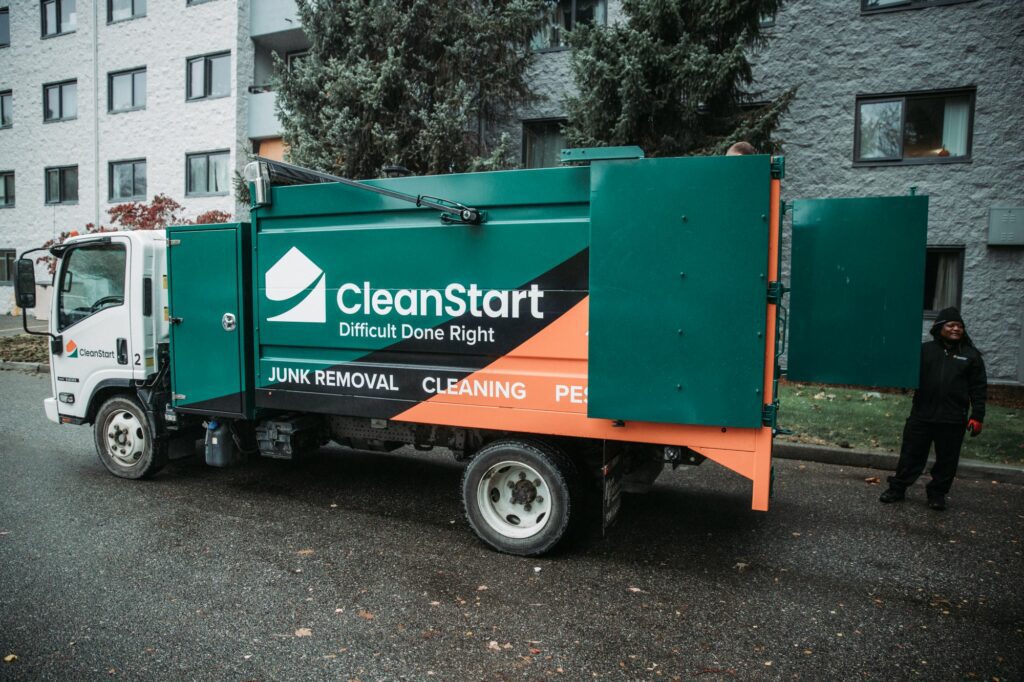Clutter vs Hoarding: How to Tell the Difference

Have you ever wondered if you or someone you love is hoarding items? Where is the line in which a cluttered space becomes a hoarded space? Furthermore, where is the line in which a hoarded space becomes dangerous to the tenant and/or their neighbors? CleanStart has been providing hoarding support in the Lower Mainland for over 10 years, and we often get these types of questions from our clients.
Our friends at Valour Technical Cleaning wrote an awesome article on this exact topic, you can find the full article here: https://valortechnicalcleaning.com/blog/clutter-vs-hoarding/
Did you know that roughly two to six percent of the population has a hoarding disorder? And yet despite hoarding being a common condition, very few people know exactly how to define it. For instance, what’s the difference between being a hoarder versus having a cluttered space?
The first step to correctly diagnosing hoarding and to start on the path to recovery is to understand the nuances that separate it from simply being disorganized. With that in mind, we’ve put together this quick guide to clutter vs hoarding, so you can identify signs early on and take action to protect the people at risk.
What is Clutter?
When a space is cluttered, it’s generally untidy, with several of the same items filling the areas. Alternatively, a cluttered space can be one that simply hasn’t been organized yet—for instance, think of when you’ve just moved into a house and need to unpack or put things away.
Examples of clutter could be a pile of clothes, unfinished artwork, open books, and or boxes that haven’t been unpacked like in the above example. In a cluttered space, it can be harder to find items but there is typically still room to move around easily. Interestingly, according to studies, removing clutter could get rid of up to 40% of housework.
In short, clutter is a nuisance but it isn’t considered harmful.
What is Hoarding?
Hoarding is a consistent inability to discard or part with belongings, whatever their value. Compared to clutter, hoarding is more extreme, with sufferers holding on to excessive amounts of items.
Hoarding behavior can develop because of a mental illness such as depression or anxiety, or it can be triggered by a traumatic event. People who struggle to control how much they buy are already prone to hoarding, as the more they accumulate, the more they may believe that things have a sentimental value. Likewise, people who have grown up in hoarding environments, or who live with hoarders, are more likely to become hoarders themselves.
Some of the most commonly hoarded items are newspapers, junk mail, bills, household supplies, and containers. Food waste can also be hoarded. Unlike clutter, hoarding can be dangerous, as items can become hazards, and mold or bacteria can grow in unhygienic conditions.
Impact on Mental and Physical Health
Both clutter and hoarding affect how individuals think and feel. That said, hoarding is a compulsive disorder and requires medical attention.
People who hoard often report feeling stressed and anxious, and sometimes physically limited because of the lack of space. The severity of hoarding can range, but it’s worthwhile to contact a medical professional to intervene if you suspect someone of hoarding.
A mental health specialist can support people who hoard, or in extreme cases, housing agencies, protective services, elder services, and animal control may need to get involved to protect the individual.
Clutter, although not as serious as hoarding, takes a toll in different ways. One study found that too much visual stimulation alters concentration and how your brain processes information. Clutter has equally been linked to unhealthy habits, with another experiment discovering that people overeat snacks due to stress in disorganized environments.
Every person, at some point in their life, will likely make clutter or deal with clutter. But clutter is a temporary situation that can be restored in a small amount of time. Hoarding, on the other hand, is more complex and time-consuming to address. Beyond having help to tidy the physical space, people who hoard should seek treatment as soon as possible to prevent the condition from worsening.


